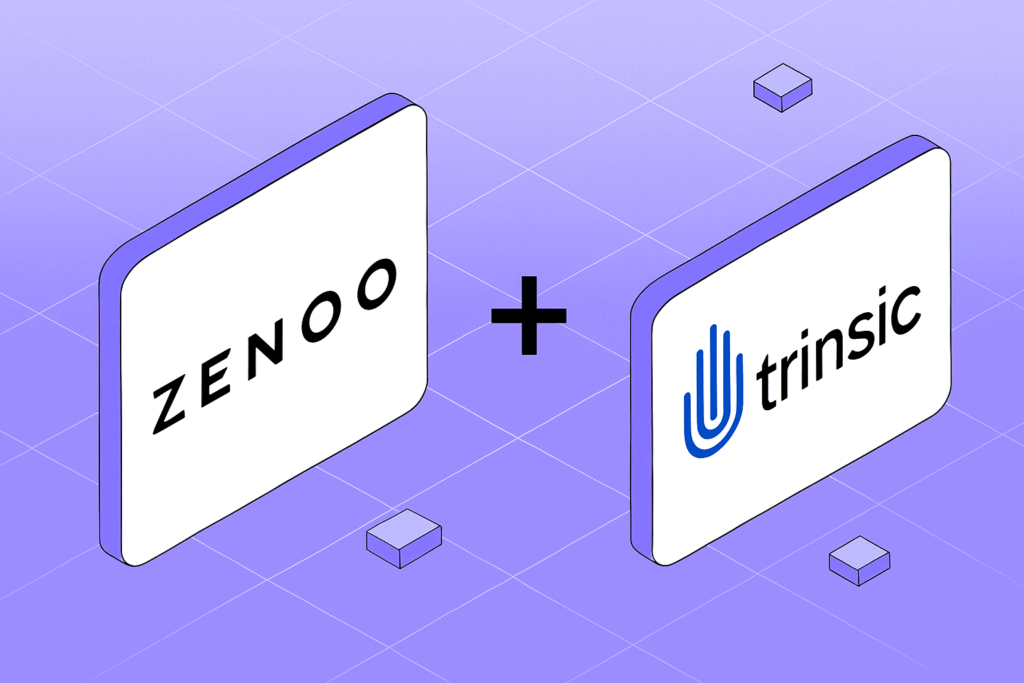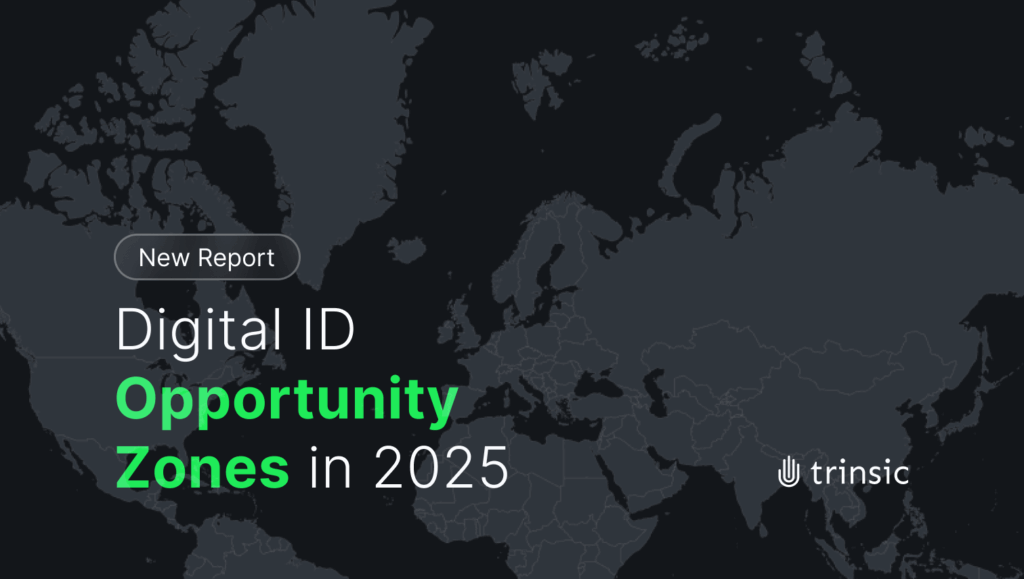Looking to do its part in the fight against the COVID-19 pandemic, Trinsic announced three months ago that it would waive all fees for anyone working on projects related to the pandemic. Since then, we have seen a myriad of use cases ranging from using verifiable credentials for HIPAA certifications, to privacy-first contact tracing, to credentialing doctors for telemedicine.
The use case with the strongest traction has been creating verifiable COVID-19 test results in digital form. Currently, the process of receiving and using a paper-based COVID-19 test result is fraud-prone and clunky. Verifiable credentials makes this process more secure and streamlined.
One of our partners, MedCreds, is on the leading edge of providing secure, privacy-respecting, and regulatory-compliant solutions and has recently taken their COVID-19 verifiable test-result product to market.
MedCreds & COVID-19 test results
MedCreds is an application that provides people with their COVID-19 test result in the form of a verifiable credential. This means that MedCreds gives people a trustworthy digital version of their test result that they carry on their phone or computer and can share with others. Trinsic APIs power the MedCreds application, allowing for the secure and scalable exchange of verifiable credentials.
Employers are currently using MedCreds to better protect their patients and staff as they return to work.

Here’s how it works:
- A person registers for a MedCreds account and connects with a MedCreds medical provider.
- The MedCreds provider briefly chats with the person and orders a test.
- The person then takes a FDA-approved COVID-19 test, and the medical provider sends the patient their test result as a verifiable credential which they can store on their mobile phone or computer.
- The person can then easily share their test result by scanning a QR code at places like their dentist’s office, their workplace, or the airport.

MedCreds in action
MedCreds recently announced that it partnered with BraveMaker, a California-based nonprofit film arts organization, to help its film crews more safely return to work for a recent filming project. A preliminary trial was done as a first step toward standardizing the use of verifiable credentials for COVID-19 test results into a reliable process to help re-start movie production as safely as possible.
Dr. Ben Littlejohn is a board-certified, family-medicine physician who works with MedCreds as a medical advisor. Of the partnership between MedCreds and BraveMaker he said the following:
“I am excited that patients to whom I have issued MedCreds verifiable credentials can prove to any other party, with certainty, that I issued these test results. Until now, this level of verification for medical test results has not been possible. I am proud to help BraveMaker studios get back to work and restart the independent film industry."
The film industry is not alone in using MedCreds to return to work. MedCreds has partnered with the Georgia Academy of General Dentistry (GAGD) to provide free COVID-19 test credentials to their providers and patients. Using MedCreds, dentists can significantly reduce the risk of spreading and contracting COVID-19 for both them and their patients. The video below provides a brief summary of how this works.
Streamlining the process
The current process of delivering COVID-19 tests results is cumbersome and inefficient. When a medical professional receives the result of a COVID-19 test, they must call the patient to deliver the result. If the patient does not answer (a frustratingly frequent occurrence), the provider must keep calling until the patient does answer because leaving voicemails with test-result information is a violation of HIPAA regulations.
If a patient wants documentation of their test results, they must either pick up a printout of their test result or have the result faxed to them. Emailing the test result to the patient is not HIPAA-compliant.
It is essentially impossible to verify that a test document is legitimate because:
- Printouts are notoriously easy to forge.
- There is no standardized format for COVID-19 test results, so it’s hard to visually spot a fishy-looking document.
- And there are a dizzying number of labs and types of tests—all of varying quality.
You may think someone finding a suspicious-looking document could simply call the lab or doctor to verify its authenticity, but the lab or provider would be unable to answer any questions because—you guessed it—that’s not HIPAA-compliant.
With MedCreds, the medical professional delivers the test result straight to the patient’s phone or computer, skipping the hassle of contacting them by phone. The patient can share the result in a private way with anyone, and anyone can verify (using Trinsic’s advanced cryptography) that it was issued by such-and-such lab and hasn’t been tampered with or altered. And, it is HIPAA-compliant!
Dr. Brent Blue is a family-practice physician and another medical advisor for MedCreds. In the following video, he explains why his practice uses MedCreds, and why he recommends it to his colleagues.
Reducing uncertainty
While it is impossible to eliminate all risk, the MedCreds system significantly reduces the risks of reentering the office, going to the dentist, boarding an airplane, etc.
Knowing that someone recently tested negative for the novel coronavirus significantly reduces the likelihood that they are spreading the disease. This information can be combined with other data such as COVID prevalence in a certain area, how close people are likely to interact in a certain setting, and the age or health demographics of groups to make better decisions about when and how to reopen, and how to do so safely. Trinsic CEO Riley Hughes wrote:
"By risk decisions, I mean that everyone can autonomously decide how much risk they’re willing to take on. For example, an airline could specify passengers will only be allowed to board if they can present a negative result from a test that was taken in the last two hours. But the employee loading the bags into the plane maybe only needs to have taken a test in the last 48 hours. The policy can be set depending on the risk level of the activity."
The steps to safely reopen society and the economy are not cut and dry. And we’re still learning every day about the best ways to reopen economies. But MedCreds provides a valuable tool to make better risk decisions and reduce the risk of spreading or contracting the virus.
Architecture
MedCreds is built on a best-in-class architecture and with expert policy and governance at its core. Its technology is built upon the Trinsic platform, including all three of Trinsic’s APIs. They are using Sovrin MainNet as the root of trust for their W3C verifiable credentials. MedCreds initiated the fast-growing Covid Credentials Initiative (CCI), which now boasts the involvement of nearly 100 companies. They are compliant with the CCI Governance Framework and are active contributors to that work in the Trust over IP Foundation.
For more information on MedCreds, visit www.medcreds.com or contact them directly. We’re excited for MedCreds’ continued growth and look forward to seeing the impact verifiable credentials will have in addressing the effects of the pandemic. If you are working on a COVID-19 related use case that involves verifiable credentials, you can sign up and get access to our world-class SSI platform for free and start building today. Feel free to contact us to discuss your use case or get a demo of the Trinsic Studio in action.









